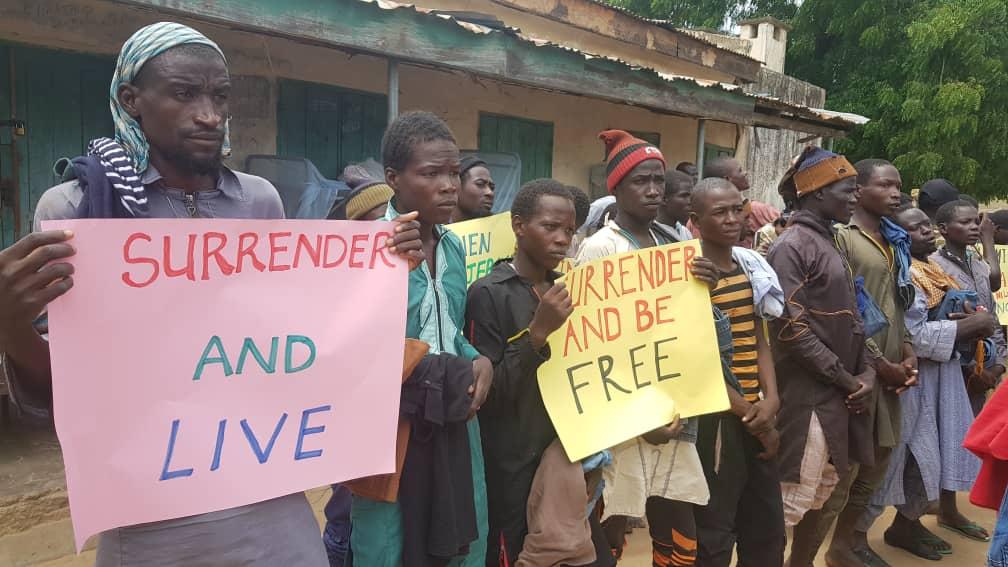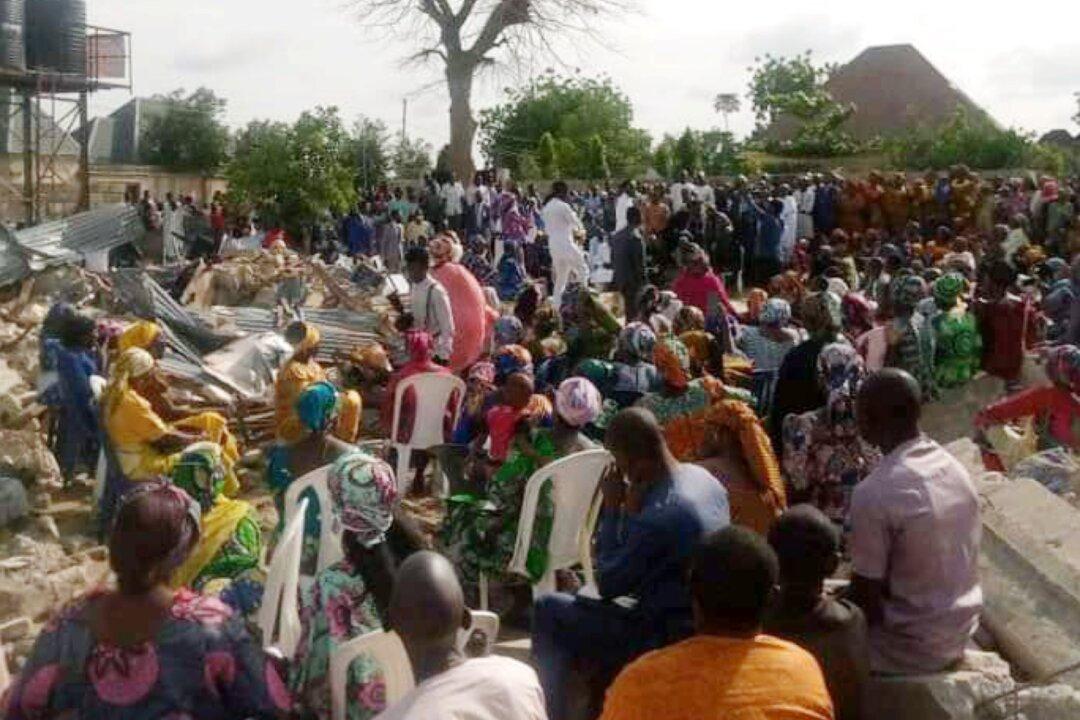MAIDUGURI, Nigeria—In a video, Boko Haram fighters and their families march in single file out of the tall grass of Nigeria’s Sambisa Forest. Off-camera, members of the Nigerian army greet them, in one of several mass surrenders taking place in three countries.
The video of several hundred women and children and a few men emerging from a meadow on Aug. 15 was verified for The Epoch Times by David Otto, a UK-based consultant to the Nigerian army.


